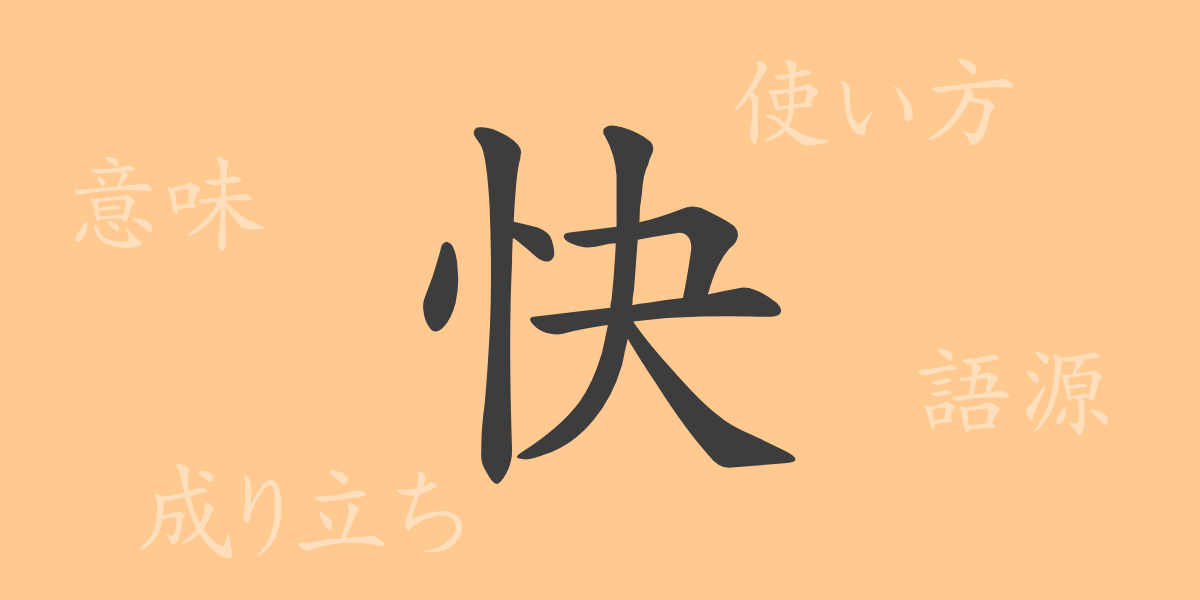The beauty of the written word in Japan lies in the richness of its form and meaning. Each of the commonly used Kanji in Japan has its own unique history and story, deeply rooted in our everyday lives. In this article, we will delve into the commonly used Kanji “快(Kai),” exploring its origins and contemporary usage. Enjoy a comfortable reading experience.
The Origins of 快
The Kanji “快” originated in ancient China. This character is composed of the radical “心(Kokoro),” which represents the heart, and “夬,” a pictograph that signifies decision or resolution. Therefore, “快” was originally used to express a sensation of clarity and refreshment in the heart or a feeling of comfort. Over time, this Kanji was introduced to Japan and has come to be used in various expressions within the Japanese language.
Meaning and Usage of 快
The Kanji “快” conveys meanings such as “comfortable,” “quick,” and “cheerful.” It is often used to describe sensations, speed, and psychological states. For instance, “快適(Kaiteki)” refers to a comfortable environment or situation, “快速(Kaisoku)” indicates moving quickly or the means to do so, and “快晴(Kaisei)” describes clear and sunny weather. These words are utilized in a wide range of contexts, including everyday conversations, business settings, and even in product advertising.
Readings, Stroke Count, and Radical of 快
The Kanji “快” has specific readings and elements of writing.
- Readings: The Onyomi reading is “かい(Kai),” and there is no particular Kunyomi ) reading.
- Stroke Count: It has a total of 7 strokes.
- Radical: The radical is “心部(Kokorohen)” or “heart radical.”
Idioms, Phrases, and Proverbs Using 快 and Their Meanings
There are numerous idioms, phrases, and proverbs that include “快.” Here are a few examples:
- 快適(Kaiteki): A state of comfort without any discomfort.
- 快速(Kaisoku): An extremely fast speed.
- 快晴(Kaisei): Clear skies with no clouds in sight.
- 快刀乱麻(Kaitouranma): Solving complex problems efficiently and swiftly.
- 快哉を叫ぶ(Kaisai -wo -sake-bu): To express great joy.
These idioms and phrases add depth and color to the expressions in the Japanese language.
Conclusion on 快
The Kanji “快” plays a significant role in the Japanese language with its rich meanings that one might not expect from its simple form. Indispensable for expressing comfort, speed, and brightness, this Kanji enriches our daily communication. Through this exploration, you have likely touched upon the deep charm of the Kanji “快” and gained a new perspective on the Japanese language.

























